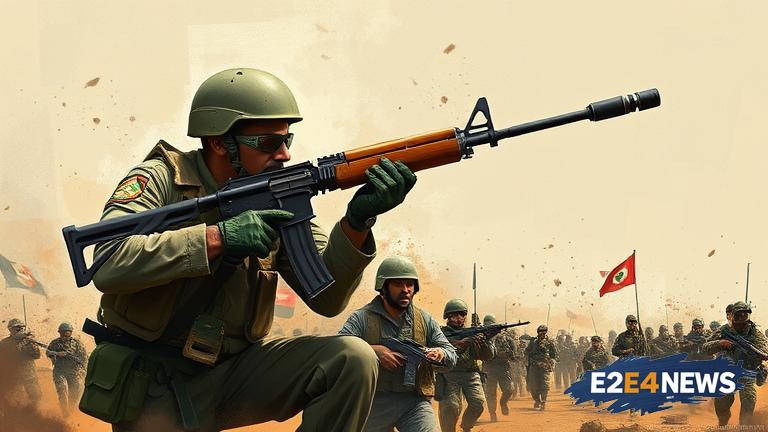The Lebanese armed group Hezbollah is facing increasing pressure to surrender its weapons, but the organization is refusing to back down. The group’s refusal to disarm has sparked concerns about regional stability and the potential for conflict. Hezbollah has been a major player in Lebanese politics for decades, and its military wing is considered one of the most powerful in the region. The group’s arsenal includes thousands of rockets and missiles, which it claims are necessary for defense against Israeli aggression. However, critics argue that Hezbollah’s weapons pose a threat to regional stability and undermine the authority of the Lebanese state. The pressure on Hezbollah to disarm is coming from a variety of sources, including the United States, Israel, and other Western countries. These countries have long considered Hezbollah a terrorist organization and have imposed sanctions on the group and its leaders. The Lebanese government has also come under pressure to take action against Hezbollah, with some politicians calling for the group to be disarmed and others advocating for a more nuanced approach. Despite the pressure, Hezbollah remains defiant, with its leaders insisting that the group will not surrender its weapons. Hezbollah’s secretary-general, Hassan Nasrallah, has stated that the group will continue to resist Israeli aggression and defend Lebanon’s sovereignty. The group’s refusal to disarm has sparked concerns about the potential for conflict, particularly with Israel. The two sides have clashed repeatedly over the years, and the situation remains volatile. The United Nations has called for calm and restraint, but the situation remains tense. The pressure on Hezbollah is not just coming from outside Lebanon, but also from within. Some Lebanese politicians and citizens are critical of the group’s dominance of the country’s politics and its refusal to disarm. They argue that Hezbollah’s weapons are a threat to Lebanon’s stability and undermine the country’s sovereignty. However, others support the group and see it as a necessary defense against Israeli aggression. The situation is complex and multifaceted, with a variety of different perspectives and interests at play. The international community is watching the situation closely, with many countries calling for calm and restraint. The United States has imposed sanctions on Hezbollah and its leaders, and has called for the group to be disarmed. Israel has also taken a hardline stance against Hezbollah, with some politicians calling for military action against the group. The European Union has taken a more nuanced approach, calling for a peaceful resolution to the situation and urging all sides to exercise restraint. The situation remains volatile, with the potential for conflict always present. Despite the challenges, there are some signs of hope, with some Lebanese politicians and citizens calling for calm and restraint. The Lebanese government has also taken steps to address the situation, including the establishment of a new national unity government. However, the situation remains complex and multifaceted, and it is unclear what the future holds. The international community will be watching the situation closely, with many countries calling for a peaceful resolution to the crisis. The pressure on Hezbollah to disarm is likely to continue, but it is unclear whether the group will ultimately surrender its weapons. One thing is certain, however: the situation in Lebanon remains volatile, and the potential for conflict is always present.





